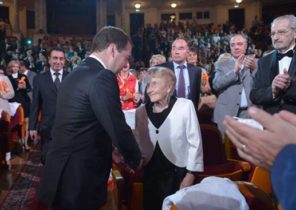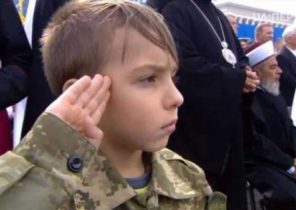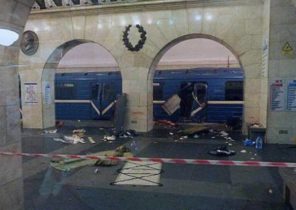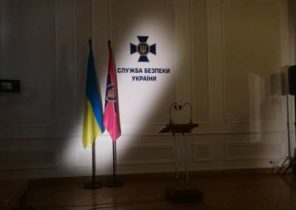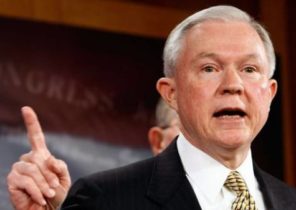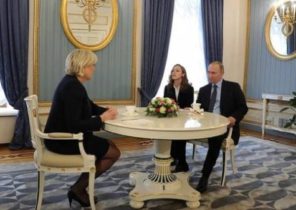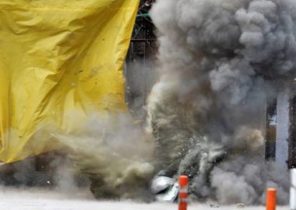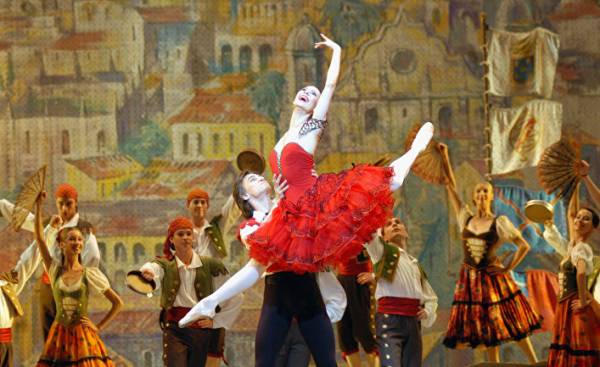
The Portuguese have already got used to the Russian “invasion”. And generally greet them with interest and even enthusiasm. It is, of course, of the invasion, not the military, and otherwise. So, don’t have time to lie down passions around of what happened in the October 1917 Soviet revolution (October according to our calendar, in Russia, lived according to the Gregorian calendar, the revolution took place on 7 November), as we have jubilantly greeted the artists of the Russian ballet, who were to speak at the end of the year, at the Lisbon Coliseu dos Recreios.
Russian ballet even received a rave review in the Manifesto of josé de Almada Negreiros (José de Almada Negreiros), Rui Coelho (Coelho Ruy) and Jose Pacheco (José Pacheco), which was named “one of the most beautiful stages of the civilization of modern Europe”. Many years later, in 2001 (which fatally was marked by the terrorist attack on the twin towers), it was the turn of music “invasion”: 132 concert at the cultural center of Belem during a three-day music festival devoted to the works of Russian composers. There we listened to the music of Tchaikovsky, Prokofiev, Rachmaninoff, Stravinsky, Shostakovich, Glazunov, Borodin, Scriabin, Mussorgsky, Rimsky-Korsakov. And numerous Russian artists.
But that’s not all. In 2011 we held the “Russian spring”, which, according to organizers, brought together “the best of dance, art and choral collectives from different regions of Russia, demonstrating a consistently high level of professionalism and participating in international festivals”. In 2016, the “invasion” was a double: not by sea and air, and through movies and music. In Porto House of music has declared the year 2016 as the year of Russia and promised “the richest in the history of Portugal, a program of concerts of Russian music” (again, Prokofiev, Rachmaninoff, Stravinsky, Borodin, Rimsky-Korsakov, Mussorgsky and, of course, invited Russian musicians).
Meanwhile in Lisbon at the initiative of Leopard Films was organizovan cycle of Russian cinema, including the display of works of Eisenstein, Dziga Vertov, Klimova, Dovzhenko, Bondarchuk, Sokurov, Konchalovsky, Boris Barnet and Tarkovsky. This event was in the Público article Luis Miguel Oliveira (Luís Miguel Oliveira) under the title “Russians are coming”.
Our note bears the same name, though in a different context. “The Russians are coming! The Russians are coming!” (that’s right — repeated twice) — it’s actually the title of an American Comedy Norman Jewison, filmed and released in the midst of the cold war (in 1965). In it the Director tried to portray anti-Russian paranoia of the era through a fictional comic events: off the coast of New England because of the stubbornness and stupidity of his commander (played by Theodore Bickel, actor, musician and social activist, co-founder of the folk music festival in Newport) sits stranded Russian submarine. As a result of rising so much going on that the viewer just can’t help but laugh. Of course, all ends well: the Russian could do what they wanted — they flee at the first opportunity and with the help of local residents (who at first imagined that the Russian will go immediately on the offensive, will rape, Rob, kill and arrange the bombing).
However, “the Russians are coming” in the title of our article, and not in the movie relates to another — what is the reality of today. Now all we seem to be terrible or questionable, is almost always automatically associated with the Russian. Instability and the division of Ukraine? Russian. Syria? Russian. Machiavellian interference in American and French elections in favor of trump and Le Pen? Russian, of course.
Even sinister pseudora “Blue whale” bears the stamp of Russianness: arrested its Creator, 21-year-old citizen of Russia. All this once again testifies to the darkest halo of romanticism, which is surrounded by the Russian, the continuing widespread popularity in the literature of the images of the Cossacks, who emptied the vodka bottle, balancing on the rails — the eternal game of life and death. Even the terrible suicidal “game” with a revolver and one cartridge called Russian roulette!
The problem is that between Glinka and Dostoyevsky and the owners of present-day Russia lies the chasm created by the history itself; from it arise not so much artistic manifestations of the great Russian soul, whose “invasion” world almost always (with the exception of the purely paranoid cases) were met with enthusiasm, as the ghosts of Ivan the terrible or Stalin. And because Russia geographically can fit the United States and Europe, and even a place to remain, it would be good to know for sure what is meant by “the Russians are coming” in the Putin era. Because we can talk about something far from the culture and very unpleasant.
